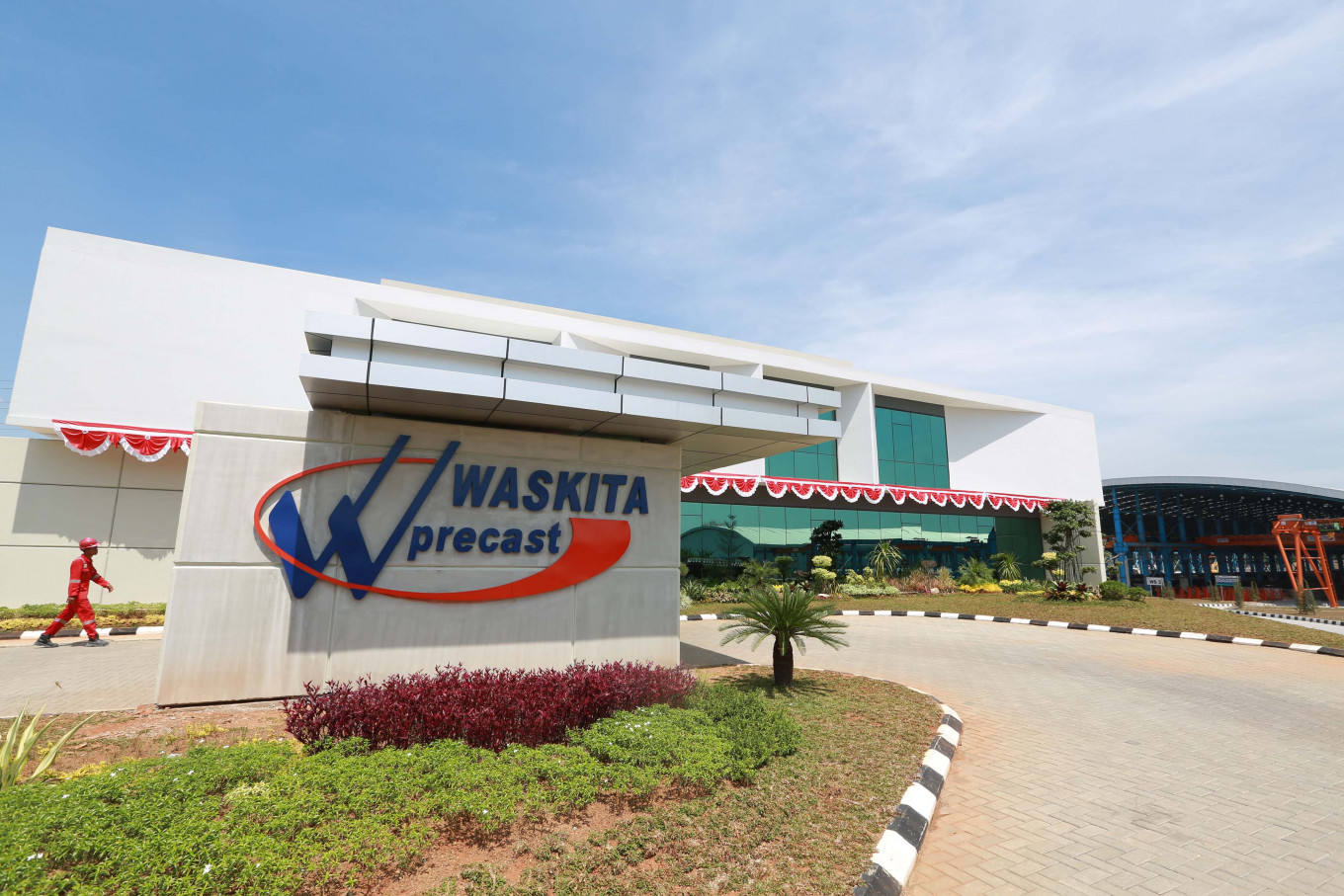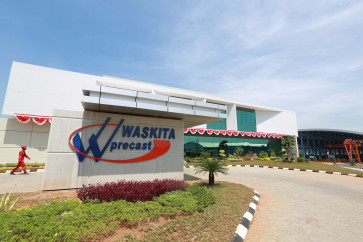Popular Reads
Top Results
Can't find what you're looking for?
View all search resultsPopular Reads
Top Results
Can't find what you're looking for?
View all search resultsAnalysis: Waskita Karya defaults on bond payments, investors dump holdings
Change text size
Gift Premium Articles
to Anyone
 An employee is entering the PT Waskita Beton Precast office building in Karawang, West Java, October 3, 2016 for a site visit. PT Waskita Beton Precast immediately offered a 40% stake to the public through a share IPO mechanism and is targeting a disability on the exchange in September 2016. (JP/Donny Fernando/Adi)
An employee is entering the PT Waskita Beton Precast office building in Karawang, West Java, October 3, 2016 for a site visit. PT Waskita Beton Precast immediately offered a 40% stake to the public through a share IPO mechanism and is targeting a disability on the exchange in September 2016. (JP/Donny Fernando/Adi)
I
ndebted state-owned publicly-listed construction company PT Waskita Karya Tbk (WSKT) has caused jitters on the stock market after defaulting on Rp 941.75 billion (US$60.38 million) worth of bonds. The State-Owned Enterprises Ministry scrambled to save Waskita by forcing state banks to agree to the company’s 10-year restructuring plan, but private bondholders rebuffed the plan. Waskita’s fate is now uncertain.
After failing in its negotiations with bondholders, Waskita had no choice but to default on the payment of interest and principal of the maturing 2018 Sustainable Bond III issue of Rp 941.75 billion, which came due on Sept. 28. Before this, Waskita also defaulted on two interest payments on the 2020 Sustainable Bond VI issue in May and August. Since then, the Indonesia Stock Exchange (IDX) has suspended trading of Waskita’s shares.
Waskita has been saddled with a massive debt of Rp 84.31 trillion, most of it owed to state-owned banks, bondholders and vendors. As the debt brought Waskita to its knees, market sources said, bondholders dumped Waskita junk bonds at up to a 40 percent discount. They just did not see any possibility of their bonds getting paid in near future, especially after state-owned banks agreed to restructure Waskita’s massive debt over 10 years.
Facilitated by the SOEs Ministry, debt restructuring negotiations between Waskita and state-owned banks went well, and all parties agreed to extend the maturity of the debt to 10 years. The restructured debt includes Rp 7.52 trillion from Bank BNI, Rp 4.55 trillion from Bank Mandiri, Rp 2.69 trillion from Bank BRI, and Rp 2.03 trillion from Bank Syariah Indonesia.
Waskita had held several meetings with bondholders, the last on Sept. 6, to negotiate its debt restructuring proposal, but the bondholders took a tougher stance. They simply refused to have their bonds restructured for maturity in 10 years. This eventually led to the default.
According to Deputy SOEs Minister Kartika “Tiko” Wirjoatmodjo, Waskita’s financial problems started with the debt it took on to build major toll road projects: the Kayu Agung-Palembang-Betung toll road section, which is part of the Trans Sumatra toll road; the Bekasi-Cawang-Kampung Melayu (Becakayu) toll road in Jakarta; the Bogor-Ciawi-Sukabumi (Bocimi) toll road in West Java; and the Krian-Legundi-Bunder-Manyar (KLBM) toll road in East Java.
Because of Waskita’s financial problems, the government transferred the completion and management of the toll roads to Hutama Karya, which has been tasked with selling the toll roads to investors. The money is to be used to salvage Waskita. To make the transaction smooth, the SOEs Ministry plans to transfer its 75 percent stake in Waskita to Hutama Karya.


















